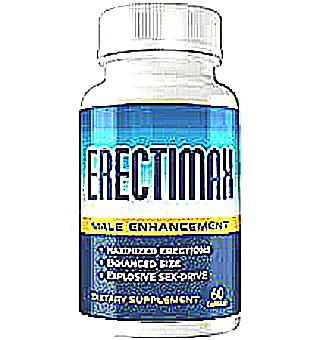Home >
Erectile Dysfunction >
Erection pills that kill sexual desire
Erection pills that kill sexual desire

Are there erection pills? What medicines in your home medicine cabinet, including birth control and cholesterol-lowering drugs, can suppress your libido? This was told by British journalist Nikki Watkins from The Sun.
Pills for erection? Maybe-
Medications are meant to make life better, but the side effects of many of them can negatively affect your sex drive or, worse, cause impotence.
However, according to sexologist Keith Taylor, do not despair. There are solutions to help prevent your "basic instinct" from being blocked.
Find out which pills can interfere with sexual sensations and what you can do about it to improve the situation. Here is a list of drugs that can have a negative impact on your intimate life.
Read also: The best pills for potency
Sedatives
These are tranquilizers, including diazepam (Valium, Seduxen, Relanium, etc.) and lorazepam (Ativan), known as "benzodiazepines". They are commonly used to relieve anxiety and treat insomnia.
Potential side effects of these pills are decreased libido or interest in sex and, in rare cases, erectile dysfunction.
It is important to let your partner know about this side effect of the drug in order to avoid further embarrassment. Feelings of guilt or embarrassment can aggravate your anxiety and, as a result, cause sexual problems.
Suddenly stopping anti-anxiety medications is not recommended, so always check with your doctor before stopping them.
Antacids
Medications that reduce stomach acid, called proton pump inhibitors. Medicines such as cimetidine and ranitidine are used to treat patients with ulcers and gastrointestinal problems.
Some users report erectile dysfunction after using antacid medications. However, these effects have not been observed in controlled clinical trials.
If you notice that you have symptoms of erectile dysfunction, you can try taking these medicines at other times of the day, but first discuss this possibility with your doctor.
Alternatively, a specialist should help you choose another drug with fewer side effects.
Contraceptives
Regarding the beautiful half of humanity. Some women report a decrease in libido, usually within six months of starting their chosen contraceptive option.
It's not uncommon for birth control to cause mood swings or weight gain, which can also prevent you from feeling like it.
Talk to your doctor about switching to an intrauterine device, oral pills, or hormone-free methods of contraception. There are many ways to prevent pregnancy: mini pills, combination pills, injections, implants, contraceptive rings or hormonal intrauterine systems.
Give your body six months to "acclimatize". Remember that you won't get the immediate lust that women can get naturally, so keep an eye on your libido for a month and see what naturally helps you get in the mood for sex.
If you don't see improvement, check with your doctor. One study has shown that loss of libido is more common in patients using injections, implants and rings, so ask your doctor about switching to an alternative method of contraception.
Antidepressants
Reduced sex drive is sometimes due to the use of selective serotonin reuptake inhibitors (SSRIs). These drugs increase the level of this hormone in the brain, reduce the symptoms of depression, bulimia, anxiety and some phobias.
The inability to achieve orgasm can also be a side effect of these medications. In men, SSRIs can cause erectile dysfunction.
It's important to continue taking any medication your doctor has prescribed, but there are ways to get your sex life back.
Planning sexual intercourse will help partners with a weak libido, as desire often arises once you start.
A vibrator will help induce an orgasm when normal stimulation fails. Movies or books "for adults" can stimulate your libido. Exercise has also been proven to increase sex drive.
If all else fails, see a doctor. Norepinephrine and specific serotonergic antidepressants are thought to have fewer sexual side effects than SSRIs.
Beta blockers
Antihypertensive drugs, such as beta-blockers and diuretics, are prescribed to lower blood pressure, which reduces the risk of heart disease.
Diuretics, such as furosemide, can reduce blood flow to the penis and vagina, making it harder to get aroused and have an erection.
They also help to flush out zinc, which is necessary for the production of testosterone, which helps maintain libido.
Beta-blockers are known to cause erectile dysfunction. There are other types of high blood pressure medications that are reported to cause fewer sexual side effects.
Erection pills such as Viagra or Cialis will help you if you are on beta-blockers. You will need to talk to your doctor to make sure it is safe and there are no contraindications for any medications you are already taking.
Non-drug treatments, such as penis rings, for example, or a vacuum pump, can also improve erections.
Statins
Medicines of this pharmacological group are used to lower the level of "bad" cholesterol in the blood to prevent heart attacks and strokes. A small 2008 study reported that some men experienced erectile dysfunction after taking statin drugs.
However, further scientific observations have shown that the degree of erectile dysfunction, on the contrary, can be reduced by statins, since they increase blood flow in all major arteries, including the vessels of the penis. Thus, the opinions of medical specialists on this issue are currently divided.
Today, there are seven main (according to the active substance) types of statins and hundreds of drugs based on them; therefore, switching to an alternative may help if you suffer from erectile dysfunction. It is important to remember that you should never stop taking your medication without talking to your doctor.
If you're concerned about erectile dysfunction, try ways to increase your body's testosterone production, such as strength training, healthy, protein-rich nutrition, and adequate rest.
Another option is to prescribe special modern medicines, which in most cases help to effectively solve this problem.
See also: Drugs for potency, inexpensive and effective



























